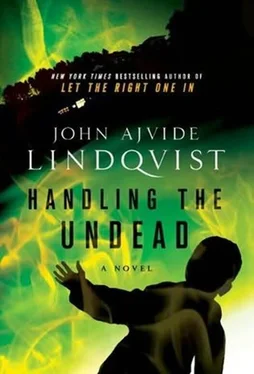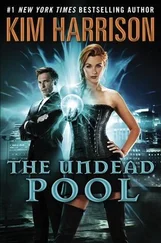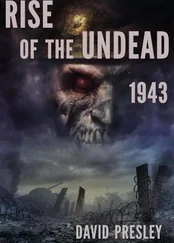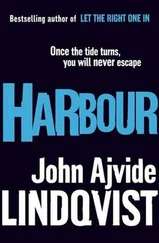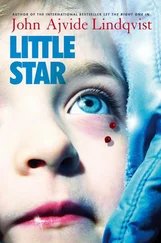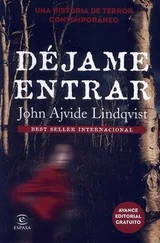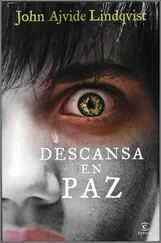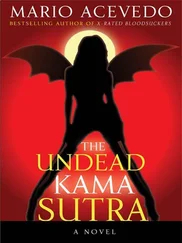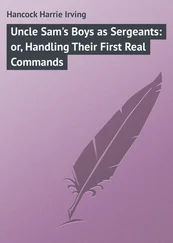John Lindqvist - Handling The Undead
Здесь есть возможность читать онлайн «John Lindqvist - Handling The Undead» весь текст электронной книги совершенно бесплатно (целиком полную версию без сокращений). В некоторых случаях можно слушать аудио, скачать через торрент в формате fb2 и присутствует краткое содержание. Жанр: Триллер, на английском языке. Описание произведения, (предисловие) а так же отзывы посетителей доступны на портале библиотеки ЛибКат.
- Название:Handling The Undead
- Автор:
- Жанр:
- Год:неизвестен
- ISBN:нет данных
- Рейтинг книги:4 / 5. Голосов: 1
-
Избранное:Добавить в избранное
- Отзывы:
-
Ваша оценка:
- 80
- 1
- 2
- 3
- 4
- 5
Handling The Undead: краткое содержание, описание и аннотация
Предлагаем к чтению аннотацию, описание, краткое содержание или предисловие (зависит от того, что написал сам автор книги «Handling The Undead»). Если вы не нашли необходимую информацию о книге — напишите в комментариях, мы постараемся отыскать её.
Handling The Undead — читать онлайн бесплатно полную книгу (весь текст) целиком
Ниже представлен текст книги, разбитый по страницам. Система сохранения места последней прочитанной страницы, позволяет с удобством читать онлайн бесплатно книгу «Handling The Undead», без необходимости каждый раз заново искать на чём Вы остановились. Поставьте закладку, и сможете в любой момент перейти на страницу, на которой закончили чтение.
Интервал:
Закладка:
For then shall be great tribulation, such as was not since the beginning of the world to this time, no, nor ever shall be.
She saw concentration camps, she saw Flora.
But for the elect's sake those days shall be shortened.
There was no mention of pain and suffering in a regular sense. Only tribulation greater than what has come before. A way of suffering that we have not yet experienced. But perhaps that was the Swedish translation. The original might speak unequivocally of purely physical, unbearable pangs. Elvy's lids grew heavy.
Perhaps in the original translation… Septuagintan… forty monks in forty rooms… one hundred monkeys at one hundred typewriters for one hundred years…
Elvy's thoughts drifted away in an unruly mishmash of images and she nodded off where she was sitting, her chin on her chest.
She was awakened by the television turning on.
The insides of her eyelids turned orange and when she opened her eyes the light from the TV screen was so blinding that she had to close them again. The television glowed like a small sun and she opened her eyes tentatively, squinting.
As she grew accustomed to the intense light she saw that there was a central figure around which the brightness billowed. Or else the rays were streaming out from the figure itself. The woman. Elvy recognised her immediately; trepidation welled up in her chest.
The woman wore a dark blue shawl over black hair, and in her eyes one could discern the grief of someone who had just seen her child die. Who had stood at the foot of the cross and seen them prise the nails from her son's hands with a crowbar. The curved, stiffened fingers that had once been small, and eager for her breast. The grinding of metal pressed through wood, the hands shredded. And everything lost.
Elvy whispered, 'Holy Virgin… ' and did not dare to look. Because suddenly she understood what it meant, tribulation, such as was not since the beginning of the world. It was what could be read in Mary's eyes. The suffering of a mother confronted with her dead child-and that child the sum of all goodness. Not simply the pain of watching the child that you have nursed and cherished be tortured and executed, but the suffering, too, that there is a world in which such things happen.
From the corner of her eye Elvy saw Mary spread her arms in a gesture of welcome. Elvy was on her way up out of the chair in order to kneel on
the ground but Mary said, 'You can sit, Elvy.'
The voice was light, almost a whisper. No great thundering voice from beyond the heavens; rather a beggar girl's shy plea for a spare coin, something to eat.
'You can sit, Elvy.'
Mary knew her name, and in the words there was a hint of the knowledge that Elvy had been running and working all her life, that she now deserved to sit for a while. Elvy dared to glance quickly at the screen and saw that tiny stars glittered on the tips of Mary's fingers. Or drops of water, tears wiped from her eyes.
'Elvy,' Mary said. 'A task awaits you.'
'Yes,' Elvy whispered, without any sound being heard.
'They must come to me. Their only salvation is to come to me. You must make them understand.'
This had occurred to Elvy, and even in the gravity of the moment she saw her neighbours-people, hard eyes, her approaches rebuffed-and she asked, 'How? How will I get them to listen?'
For one second she stared straight into Mary's eyes and was filled with terror. For in them she saw the suffering that would befall mankind if it did not repent, seek redemption in her arms. Mary held out her hand, said, 'This shall be your sign.'
Something touched Elvy's forehead. The television went off. She fell sideways on the chair and her head exploded.
The edge of the glass table was pressed against her forehead when she opened her eyes. Her head hurt. Dizzy, she straightened up on the chair, looking at the table. There was a smear of red on the corner. Several drops of blood had fallen on the rug.
The television was dark, quiet.
She stood on shaky legs and walked out into the hall, looked in the mirror.
A cut, completely level, three centimetres long but shallow, ran like a minus sign across her forehead above her eyebrows. Blood still welled thickly from the wound and she wiped a drop from her eye.
She blotted the rest of the blood away in the kitchen with a wad of paper towel. She could not bring herself to throw it away, so she placed it in a glass jar, screwed on the lid.
Then she called Hagar.
While the phone rang, she closed her eyes and saw Mary before her. There was one thing she did not understand. When Mary reached out her hand to touch her forehead, Elvy had momentarily glimpsed what it was that glittered on the tips of her fingers. It was hooks. Tiny, thin ones, no larger than ordinary fishing hooks were sticking out of her flesh.
In a way that she could not fully articulate she was convinced that Mary was only an image, created for her human eyes. She was a representation in the form of the Holy Mother. But the hooks? What did the hooks mean?
When Hagar answered, Elvy pushed these questions aside and began to relate the greatest moment of her life.
Koholma 13.30
Anna lifted the bags out of the boot as Mahler disappeared into the house. She carried them across the yard, past the pine tree where Elias' swing was wrapped around the trunk, past the outdoor table that was dry and cracked from having been out in the weather all year. She stopped there and put the bags down. She stood still, taking stock of the situation.
How had this happened? How had she been reduced to some kind of servant while her father took care of what had been her child?
The heat was oppressive in a way that foretold thunder. She looked up at the sky. Yes. The sky was covered with a paper-thin white membrane and from inland a dark mass of clouds was moving toward the coast. It was as if all of nature was trembling with anticipation. The grasses conferenced in whispers about the mercy that was about to pour from the heavens.
She felt dizzy, almost nauseated. For over a month she had lived in a vacuum, restricting her movements, her speech, to a minimum so as not to attract attention from life and allow it to start tearing and clawing at her. For over a month she had been as good as dead.
And then, suddenly: Elias back, the police poking around, flight and action, talk and decisions. She could not decide. Her father made her decisions. She had slipped out of the picture.
Anna left the bags where they were and walked into the forest.
Last year's dried leaves crunched underfoot, the shallow roots of pine trees protruded out of the turf, pressed up into the bottoms of her feet. The rumbling from Kapellskar hovered in the forest like an anxiety. She walked aimlessly down toward the boggy areas closer to the sea.
There was a tangy smell of sun-cooked pine needles and thickly layered sludge when she reached the open, moss-covered expanse. Even the moss, which was normally a bright green from the moisture of the wetland
had dried up and become light green, beige in places. When she walked on it, it crackled until her foot sank into the mossy underlayers, as if she was walking on crusty snow.
She waded out toward the centre. The deciduous trees that encircled the bog raised their crowns into a cupola, pierced in places by the sun. She lay down when she reached the centre. The moss accepted her, welled up around her. She stared up at the lazy movements in the lattice of foliage, and disappeared.
How long had she lain there? Half an hour? An hour?
She would have stayed longer if her father's voice had not called her home.
'Anna… Aaannaa!'
She stood up from the bog's embrace, but did not answer. She was too preoccupied with the feeling that had taken up residence in her body, especially her skin. She looked back at the place where she had lain. The contours of her body were clearly visible in the moss, which was now-with an almost audible groan-resuming its old form.
Читать дальшеИнтервал:
Закладка:
Похожие книги на «Handling The Undead»
Представляем Вашему вниманию похожие книги на «Handling The Undead» списком для выбора. Мы отобрали схожую по названию и смыслу литературу в надежде предоставить читателям больше вариантов отыскать новые, интересные, ещё непрочитанные произведения.
Обсуждение, отзывы о книге «Handling The Undead» и просто собственные мнения читателей. Оставьте ваши комментарии, напишите, что Вы думаете о произведении, его смысле или главных героях. Укажите что конкретно понравилось, а что нет, и почему Вы так считаете.
